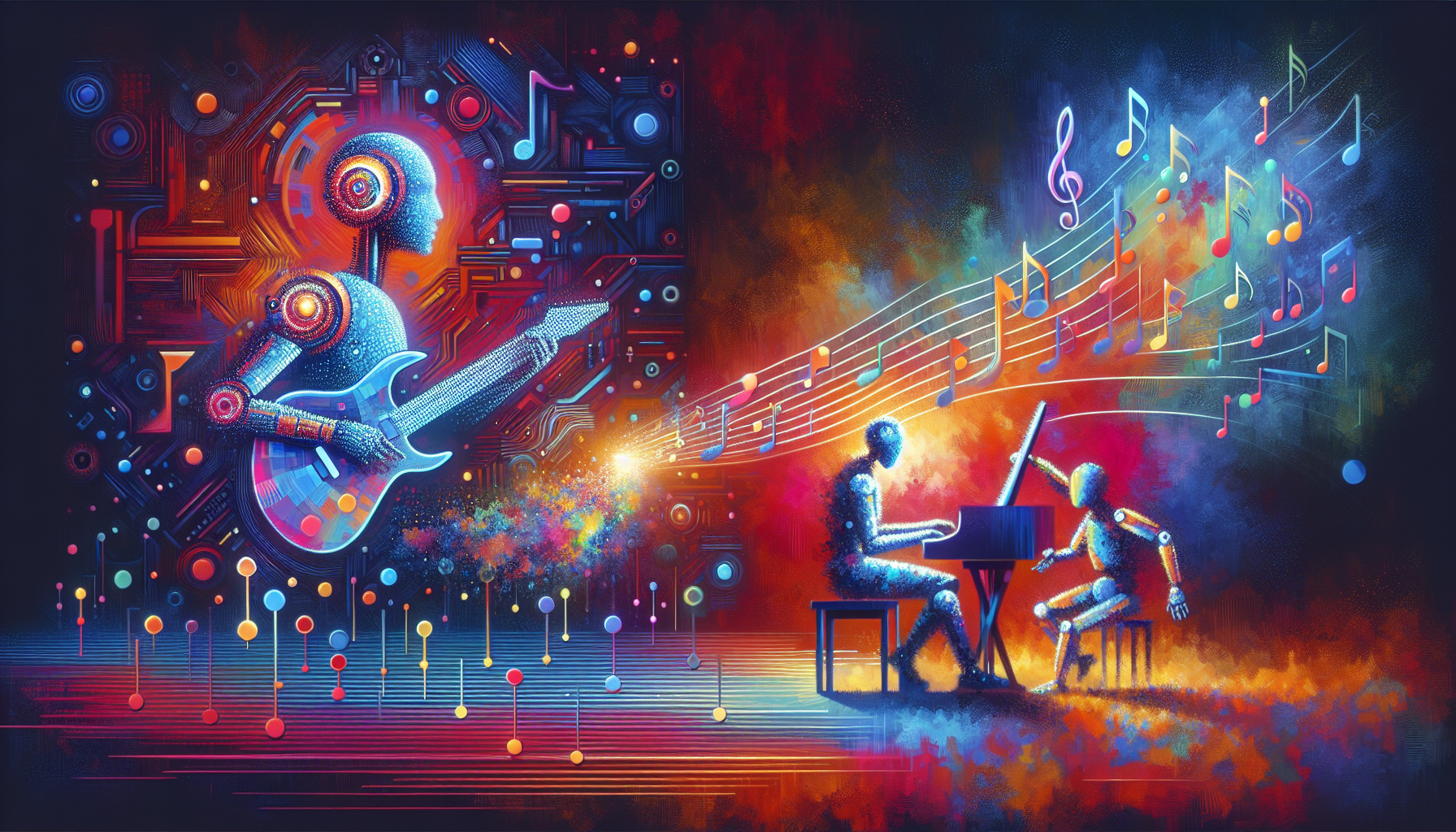
The Rise of Robo-Mozarts
If Bach were alive today, he might be surprised to find himself in competition with a silicon-chip maestro. AI is waltzing into the music industry with digital sheet music in hand, ready to create tunes that blend seamlessly alongside human-composed symphonies. Generative AI has become something of a modern-day Beethoven, composing music that can be as harmonious as a sunset and as complex as your new smartphone’s terms of service.
But before you replace your favorite band with the latest AI sensation, pause and consider: Is that pulsing beat truly music if it wasn’t fueled by a caffeine-driven musician in a cramped studio? The question sparks much debate, making Who’s the artist? a homework task for today’s philosophers.
The Copyright Tango
As if the music industry weren’t complex enough, AI stirred the pot more vigorously than a DJ at an EDM festival. The issue of copyright and fair use pops up like an unexpected bass drop. We now face lawsuits akin to epic battles, as publishers like the New York Times take on tech giants with lawsuits worthy of their own reality TV series. At the heart of these legal quagmires is whether AI’s teachers (a.k.a. the internet) can play their roles without breaking a few rules.
Enter blockchain, the supposed knight in shining armor. Promoters believe it could protect intellectual property rights and ensure musicians see what’s rightfully theirs. Imagine it as a laser pointer guiding royalties directly to the artist, bypassing all middlemen and misadventures.
From the Studio to the Stage
A few clever lines of code might streamline music production, transforming garages into bustling hit factories. AI is an invisible band member, quietly harmonizing in the background, albeit sans groupies. It boosts efficiency, helping musicians refine their masterpieces and providing more time for creative strumming or impromptu nap sessions.
But wait, amid this melodic AI advancement, human artists face a symphonic conundrum. Supporting yourself solely as a musician is daunting; many must supplement income with tours, jams, and the occasional awkward autograph session. Meanwhile, the algorithms do their thing, prompting musicians to consider if live gigs hold the same charm when crowd-pleasers are all but written by robots.
Pleading the Case for Humanism
AI may offer tantalizingly convenient tunes, but critics argue it lacks the cultural soul and emotional crescendo of a true musical journey. Can algorithms truly replicate the goosebumps from a live guitar solo or the tear-jerking crescendo of an operatic aria? The skeptics say nay, as they rally for cents and sense—imploring for artist protections in this digitally-driven age.
As the harmonious (or sometimes dissonant) relationship between musicians and technology continues to evolve, artists are marching to their own drumbeat. They’re spreading awareness faster than a viral song, championing not just their creations but the essence of human creativity against the backdrop of flashing code. The music plays on, as artists and audiences decide who truly hits the right notes.






